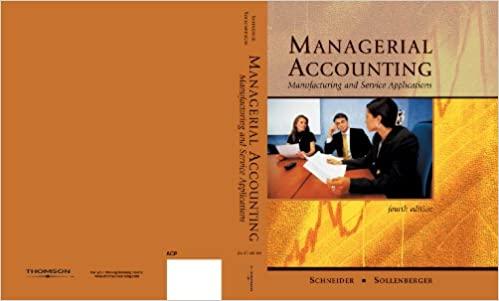Question
This question is from Mathematica and is to be answered using Mathematica code. Please do not answer if you don't know how to solve these
This question is from Mathematica and is to be answered using Mathematica code. Please do not answer if you don't know how to solve these using Mathematica. Thanks!
Consider the series ((-1)^(n+1))/(n^(61/62)) ( lower bound n = 1; upper bound = inf) which converges conditionally.
(a)
Define a function that generates the terms of the series, and a function that generates the
partial sums; define the partial sums as decimal approximations to 8 significant digits.
Then make a DiscretePlot of the partial sums for k from 1 to 50, with Filling None
Approximately what does the series converge to?
(b)
Define functions for the following scrambled sums.
Alternating 2 positive terms, 1 negative term, 2 positive, 1 negative, etc.
Alternating 1 positive term, 2 negative, 1 positive, 2 negative, etc.
Alternating 4 positive terms, 1 negative term, 4 positive, 1 negative, etc.
Alternating 2 positive terms, 11 negative terms, 2 positive, 11 negative, etc.
Use DiscretePlot to plot all five partial sum functions together (including the
original un-rearranged partial sums), for k from 1 to 50, with Filling None
Make a table that shows k together with all five partial sum functions (including
the original un-rearranged sums), for k from 1 to 50, and display as a Grid. (The
sums should all be displayed as decimal numbers.)
Do the rearranged partial sums converge to the same limit as the original un-scrambled series?
Step by Step Solution
There are 3 Steps involved in it
Step: 1

Get Instant Access to Expert-Tailored Solutions
See step-by-step solutions with expert insights and AI powered tools for academic success
Step: 2

Step: 3

Ace Your Homework with AI
Get the answers you need in no time with our AI-driven, step-by-step assistance
Get Started


